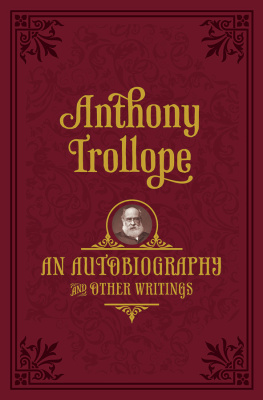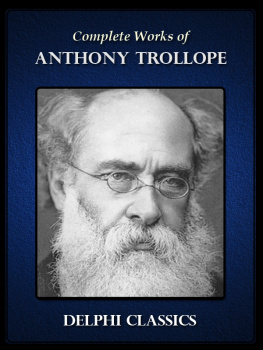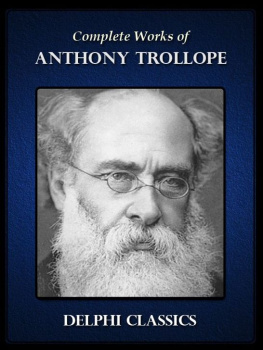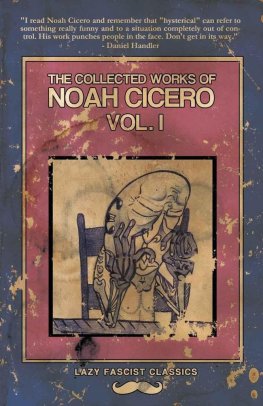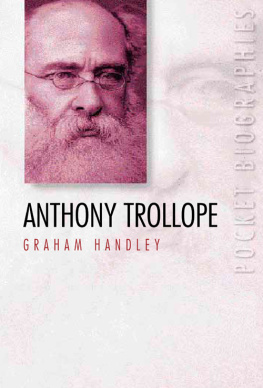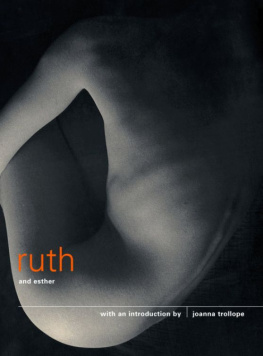LIFE OF CICERO.
Chapter I.
HIS RETURN FROM EXILE.
Cicero's life for the next two years was made conspicuous by a series of speeches which were produced by his exile and his return. These are remarkable for the praise lavished on himself, and by the violence with which he attacked his enemies. It must be owned that never was abuse more abusive, or self-praise uttered in language more laudatory. Cicero had now done all that was useful in his public life. The great monuments of his literature are to come. None of these had as yet been written except a small portion of his lettersabout a tenthand of these he thought no more in regard to the public than do any ordinary letter-writers of to-day. Some poems had been produced, and a history of his own Consulship in Greek; but these are unknown to us. He had already become the greatest orator, perhaps, of all timeand we have many of the speeches spoken by him. Some we havethose five, namely, telling the story of Verresnot intended to be spoken, but written for the occasion of the day rather than with a view to permanent literature. He had been Qustor, dile, Prtor, and Consul, with singular and undeviating success. He had been honest in the exercise of public functions when to be honest was to be singular. He had bought golden opinions from all sorts of people. He had been true to his country, and useful alsoa combination which it was given to no other public man of those days to achieve. Having been Prtor and Consul, he had refused the accustomed rewards, and had abstained from the provinces. His speeches, with but few exceptions, had hitherto been made in favor of honesty. They are declamations against injustice, against bribery, against cruelty, and all on behalf of decent civilized life. Had he died then, he would not have become the hero of literature, the marvel among men of letters whom the reading world admires; but he would have been a great man, and would have saved himself from the bitterness of Csarean tongues.
His public work was in truth done. His further service consisted of the government of Cilicia for a yearan employment that was odious to him, though his performance of it was a blessing to the province. After that there came the vain struggle with Csar, the attempt to make the best of Csar victorious, the last loud shriek on behalf of the Republic, and then all was over. The fourteen years of life which yet remained to him sufficed for erecting that literary monument of which I have spoken, but his public usefulness was done. To the reader of his biography it will seem that these coming fourteen years will lack much of the grace which adorned the last twenty. The biographer will be driven to make excuses, which he will not do without believing in the truth of them, but doubting much whether he may beget belief in others. He thinks that he can see the man passing from one form to anotherhis doubting devotion to Pompey, his enforced adherence to Csar, his passionate opposition to Antony; but he can still see him true to his country, and ever on the alert against tyranny and on behalf of pure patriotism.
At the present we have to deal with Cicero in no vacillating spirit, but loudly exultant and loudly censorious. Within the two years following his return he made a series of speeches, in all of which we find the altered tone of his mind. There is no longer that belief in the ultimate success of justice, and ultimate triumph of the Republic, which glowed in his Verrine and Catiline orations. He is forced to descend in his aspirations. It is not whether Rome shall be free, or the bench of justice pure, but whether Cicero shall be avenged and Gabinius punished. It may have been rightit was rightthat Cicero should be avenged and Gabinius punished; but it must be admitted that the subjects are less alluring.
His first oration, as generally received, was made to the Senate in honor of his return. The second was addressed to the people on the same subject. The third was spoken to the college of priests, with the view of recovering the ground on which his house had stood, and which Clodius had attempted to alienate forever by dedicating it to a pretended religious purpose. The next, as coming on our list, though not so in time, was addressed again to the Senate concerning official reports made by the public soothsayers as interpreters of occult signs, as to whether certain portents had been sent by the gods to show that Cicero ought not to have back his house. Before this was made he had defended Sextius, who as Tribune had been peculiarly serviceable in assisting his return. This was before a bench of judges; and separated from this, though made apparently at the same time, is a violent attack upon Vatinius, one of Csar's creatures, who was a witness against Sextius. Then there is a seventh, regarding the disposition of the provinces among the Proprtors and Proconsuls, the object of which was to enforce the recall of Piso from Macedonia and Gabinius from Syria, and to win Csar's favor by showing that Csar should be allowed to keep the two Gauls and Illyricum. To these must be added two others, made within the same period, for Clius and Balbus. The close friendship between Cicero and the young man Clius was one of the singular details of the orator's life. Balbus was a Spaniard, attached to Csar, and remarkable as having been the first man not an Italian who achieved the honor of the Consulship.
It has been disputed whether the first four of these orations were really the work of Cicero, certain German critics and English scholars having declared them to be "parum Ciceronias"too little like Cicero. That is the phrase used by Nobbe, who published a valuable edition of all Cicero's works, after the text of Ernesti, in a single volume. Mr. Long, in his introduction to these orations, denounces them in language so strong as to rob them of all chance of absolute acceptance from those who know the accuracy of Mr. Long's scholarship. As to the Latinity, it is not within my scope, nor indeed within my power, to express a confident opinion; but as to the matter of the speech, I think that Cicero, in his then frame of mind, might have uttered what is attributed to him. Having said so much, I shall best continue my narrative by dealing with the four speeches as though they were genuine.



